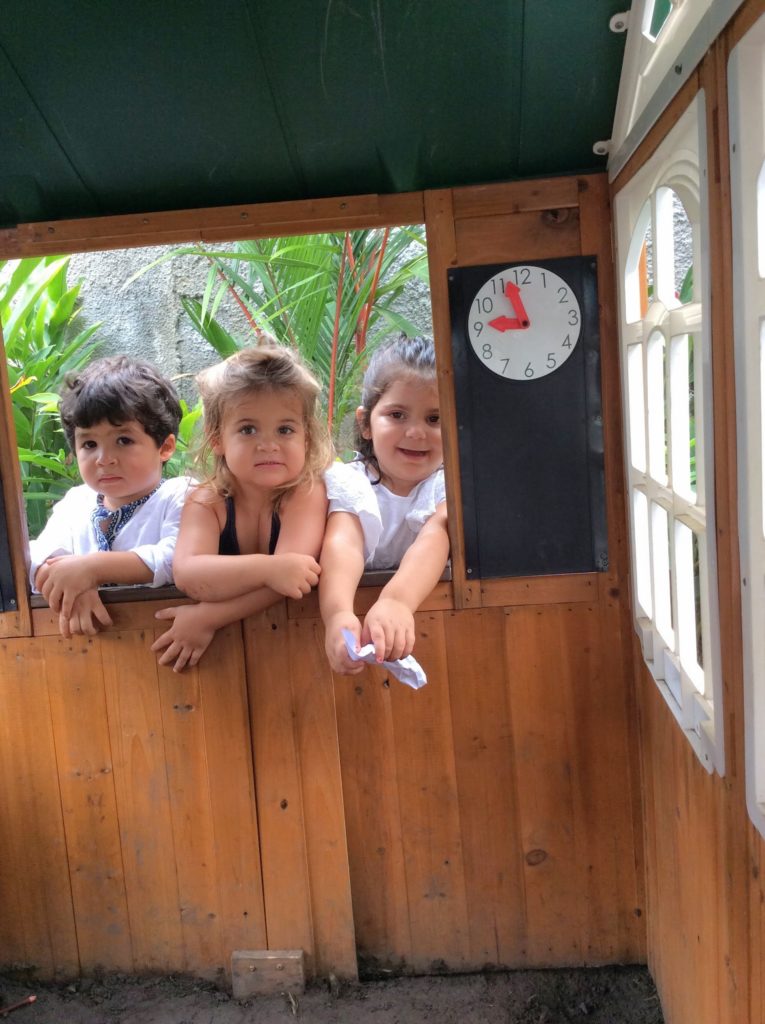
The Infant Community welcomes children from the guaranteed walking to 2 and a half / 3 years old.
We have 3 adults in each class, an educator and two AMI graduate assistants for 15 children.
In a Infant Community, we support the child to be, in a benevolent environment. We work with children to become aware of themselves, to autonomy, and to cleanliness.
The child absorbs everything in his environment without any effort thanks to the experiences carried out in the environment. He builds his identity, his psychic life, and has the capacity to think and feel himself to be in the world as a person.
The small child needs to repeat the activities. She/He imitates, collaborates with adults for her/his good psychic development. The activities are designed so that she/he can do, repeat independently and thus progress towards independence
As an important stage in life, children have the opportunity to explore the bathroom, and become familiar with the toilet. Using the toilet is an important aspect in a Montessori classroom
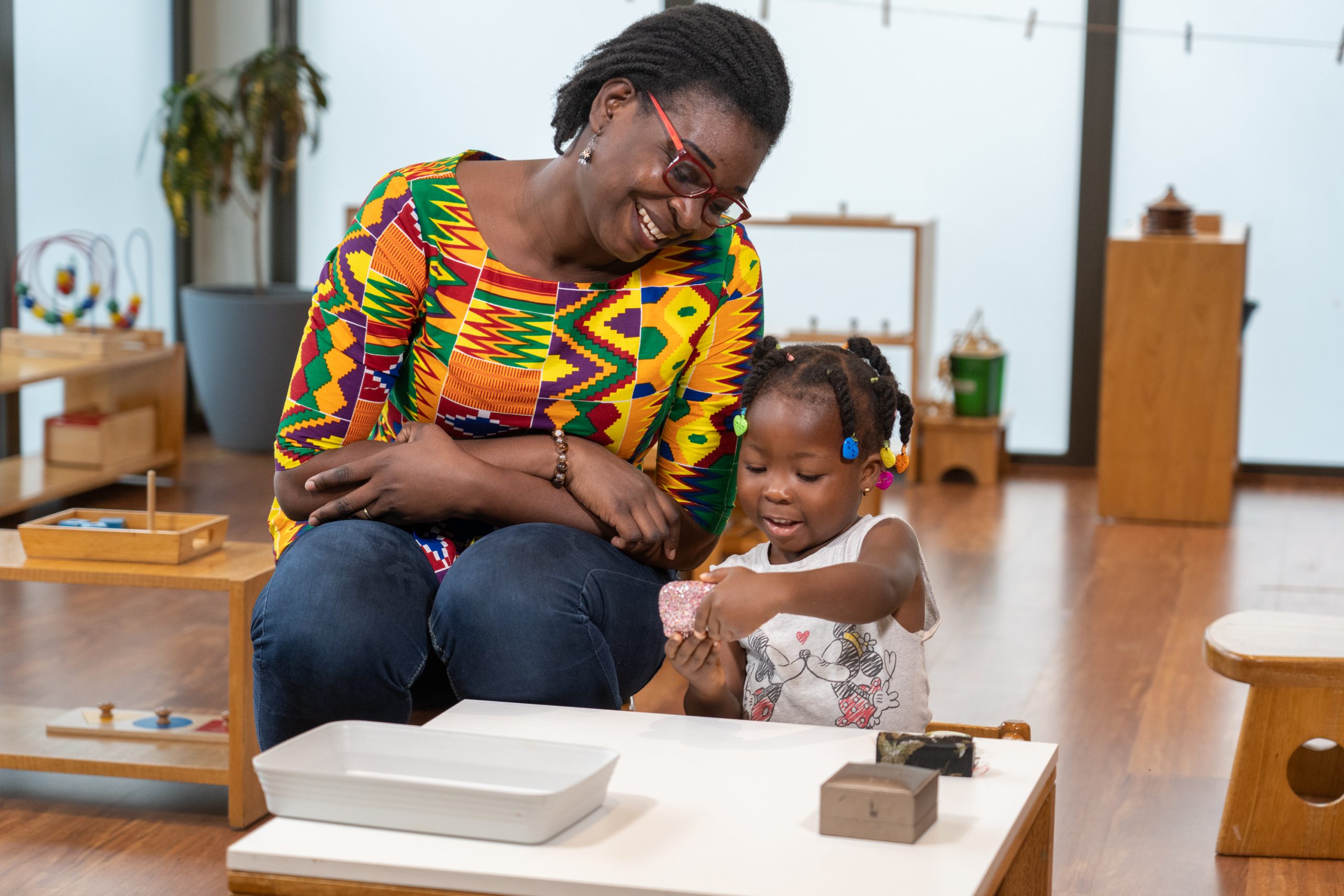
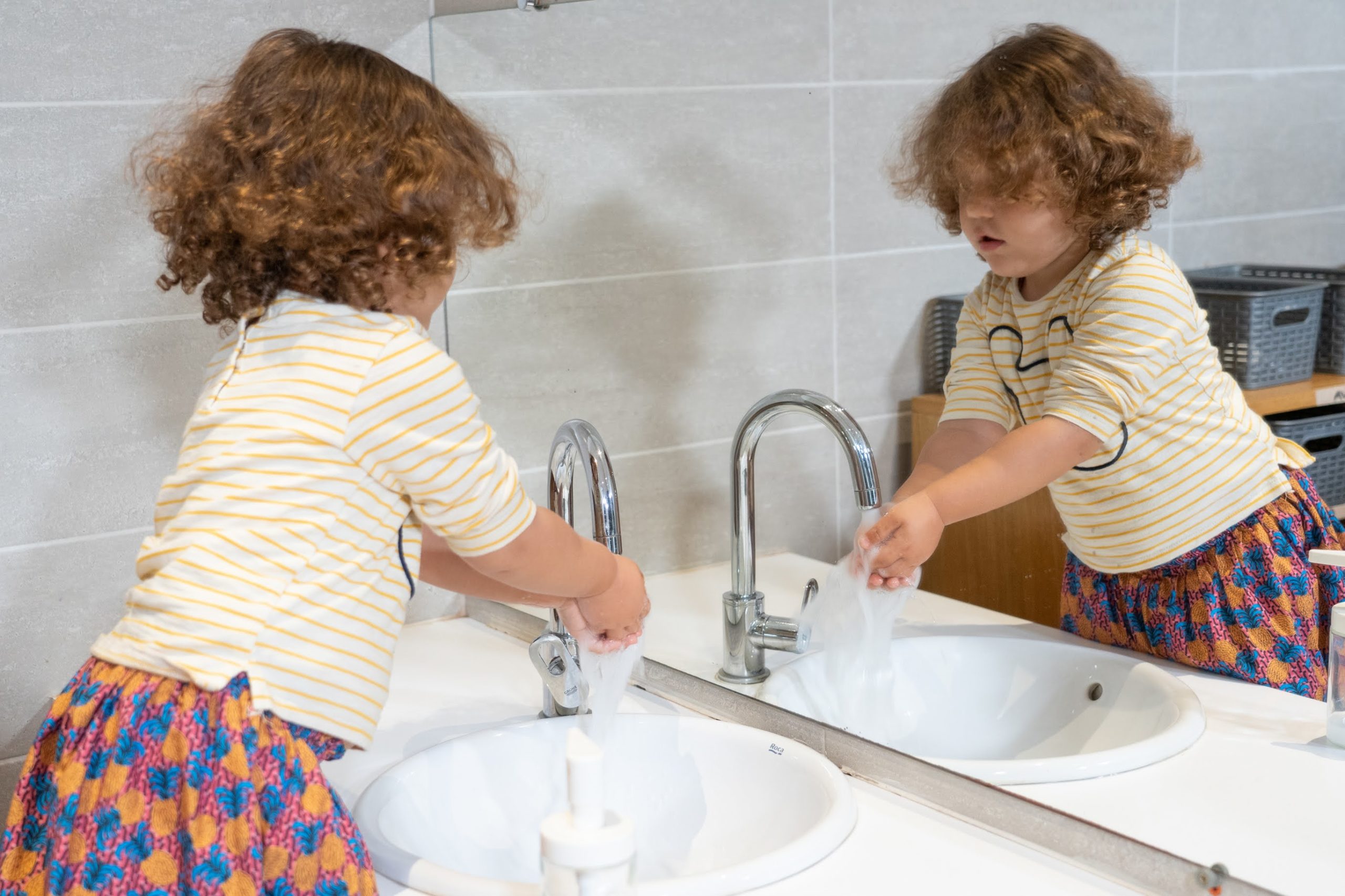
« The child is not a vessel that we fill, but a spring that we let flow »
Maria Montessori
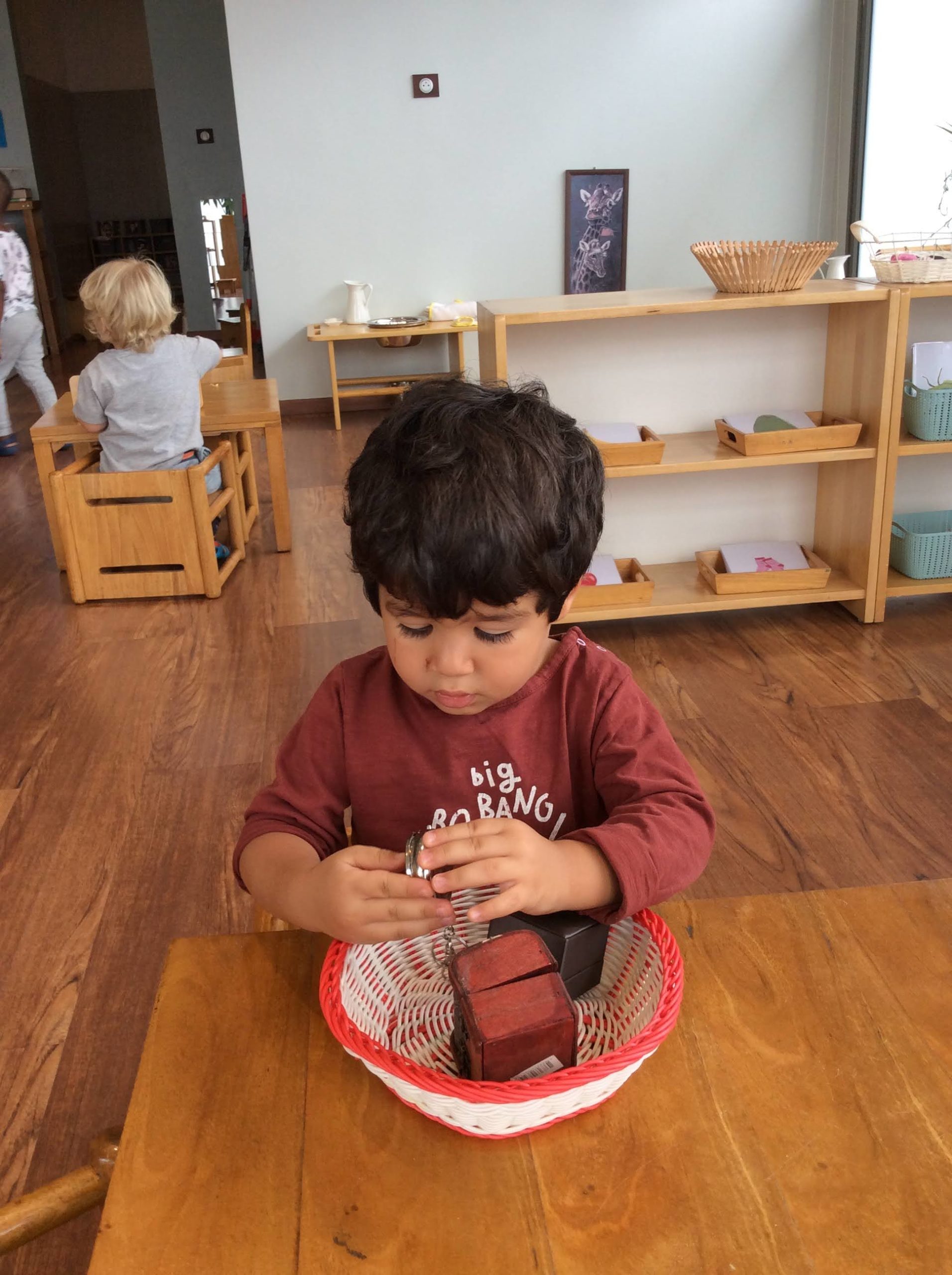
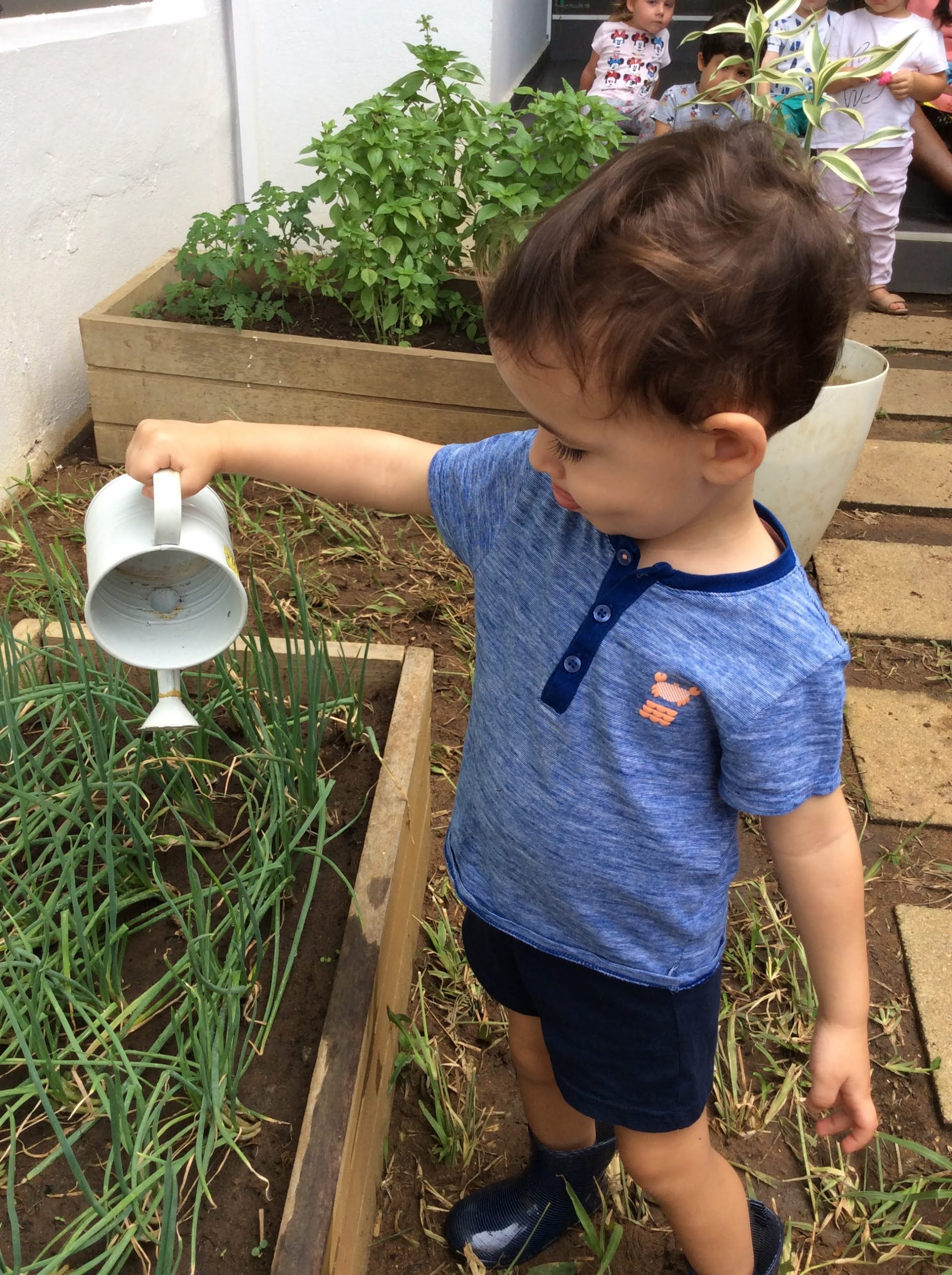
Montessori classes, called environments, are organized into several work areas, which allows children to develop their sense of order.
All the material is placed on shelves at the child’s height in baskets or in trays.
The child therefore has the free choice of his work, sits at a table or near a rug and can concentrate.
When done working, the child puts the materials back on the shelf to allow another child to work as well.
Language, music, art.
Practical life (care of the person, care of the interior environment, care of the exterior environment, grace and courtesy.)
Eye / hand coordination activities
Balance and locomotion activities
Stereognostic activities
The food
The cleanliness
Nap
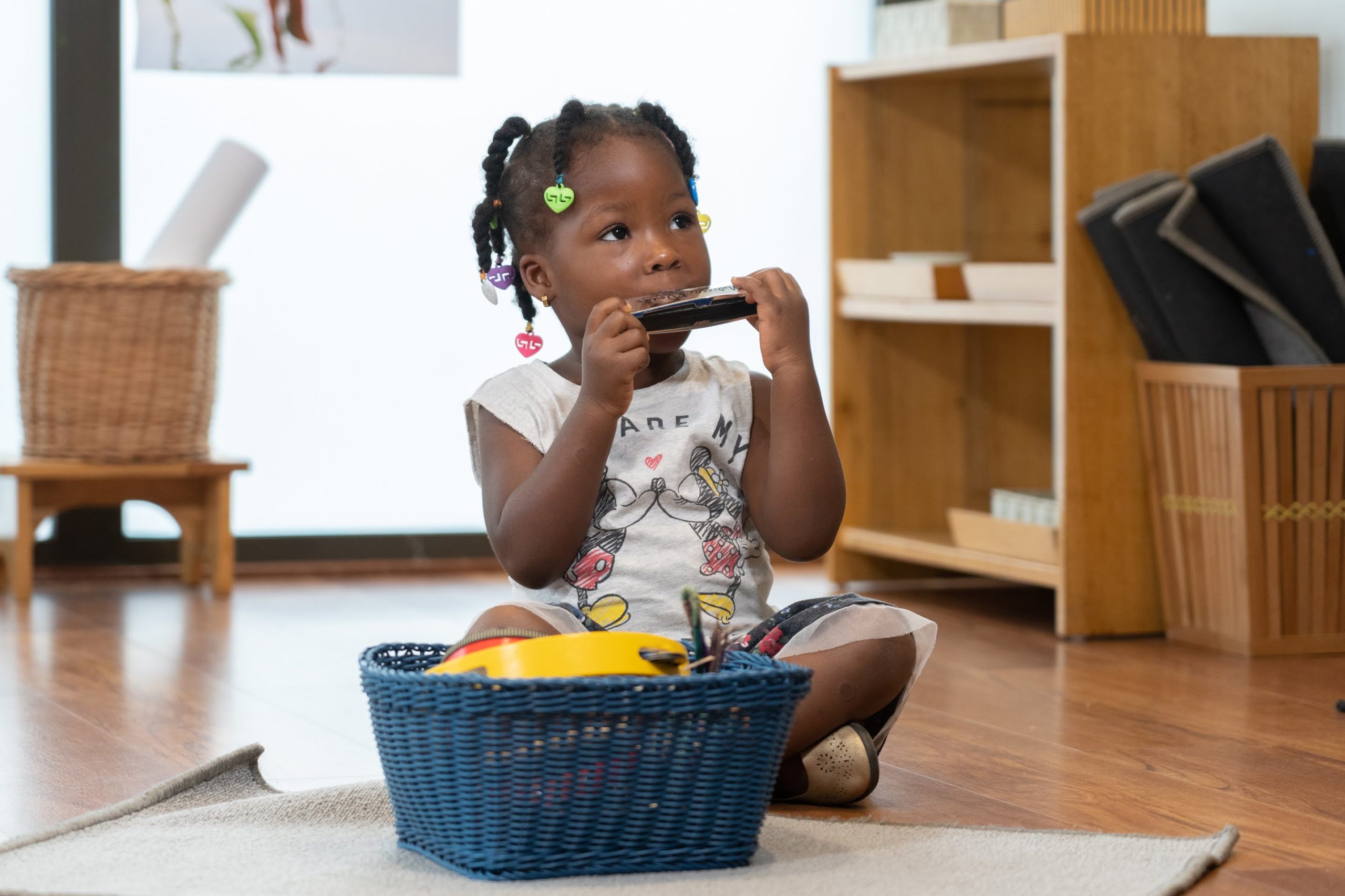
All the activities in this area are linked to the culture in which the child lives. The corresponding exercises are linked with the functions of everyday life which allows repetition and therefore improvement. For example, brushing teeth, combing hair, washing the table, polite formulas, preparing food, washing dishes, moving tables and chairs, etc.
The child experiences different materials, textures. One quality will be isolated at a time. The child classifies, orders, arranges the elements in the activity. He thus goes from the concrete to the abstract.
The creative talent of the child is expressed and he develops his musical and artistic taste through the various materials made available to him.
Vocabulary enrichment activities such as classified images around a theme or animal figurines, fruits, vegetables to allow the child to communicate with his peers, to enter into his culture and to use the appropriate words.
The adults in the class also make sure to accompany the children to recognize the emotions which overwhelm them and their feelings and to put a word to them.
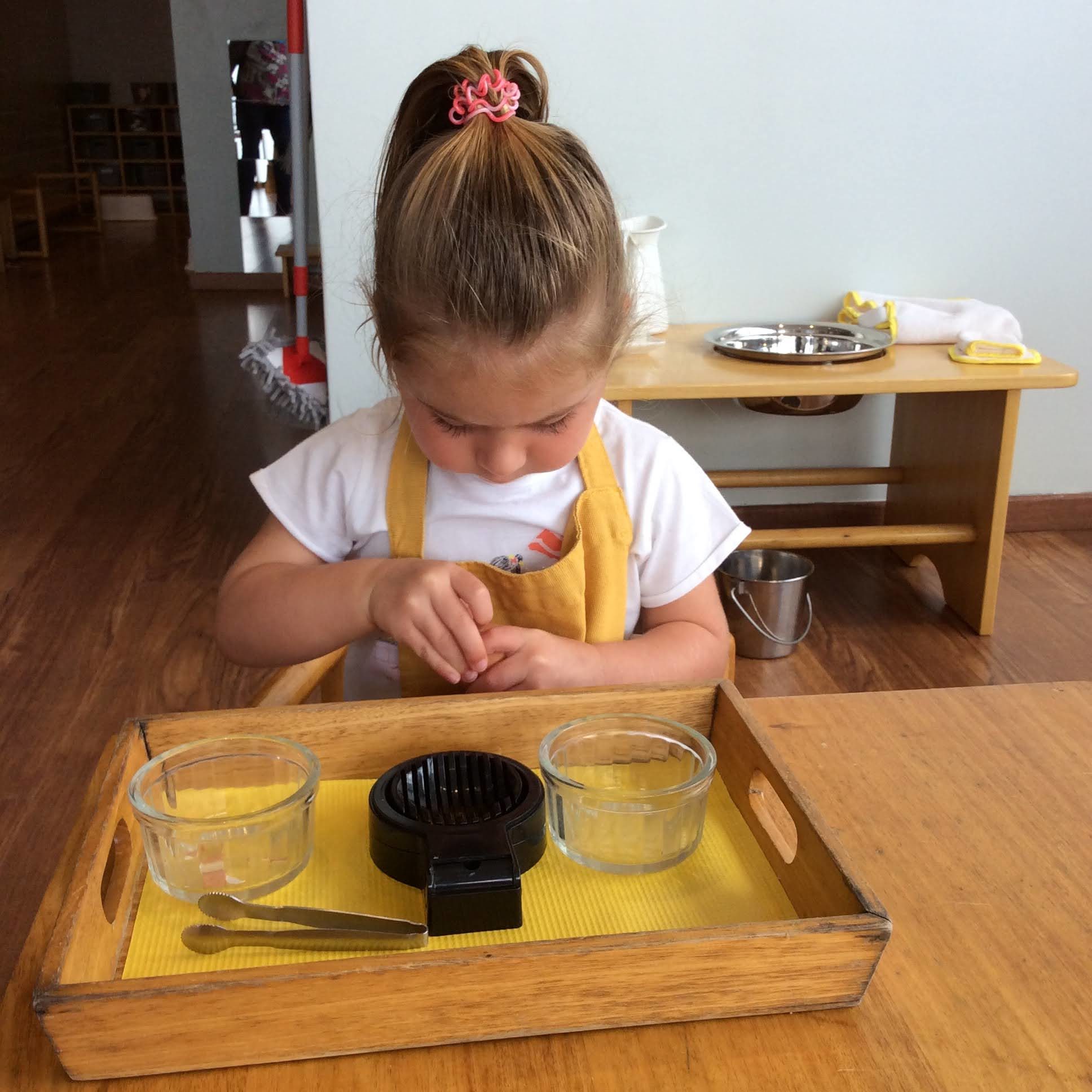
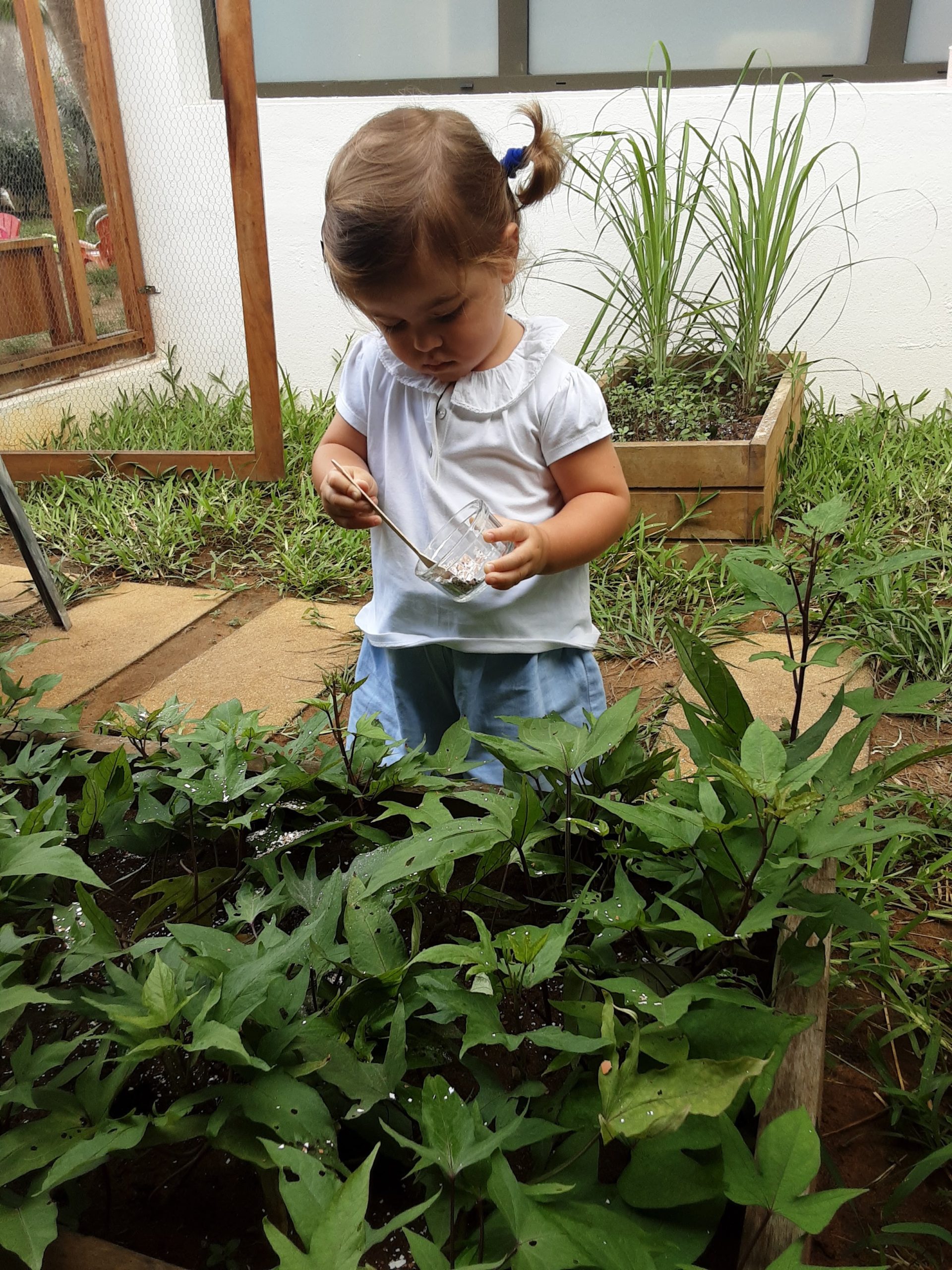
Lunch is a very important moment of sharing in our teaching approach.
The children and the educators all have lunch together. The activities around the organization of the meal (setting the table, distributing baskets, clearing) are part of the framework of learning « practical life » and socializing with others.
IMS offers a hot and balanced meal cooked, with fresh products, in the school. The menu is designed by a dietitian (Ms. Tatiana Ghandour).
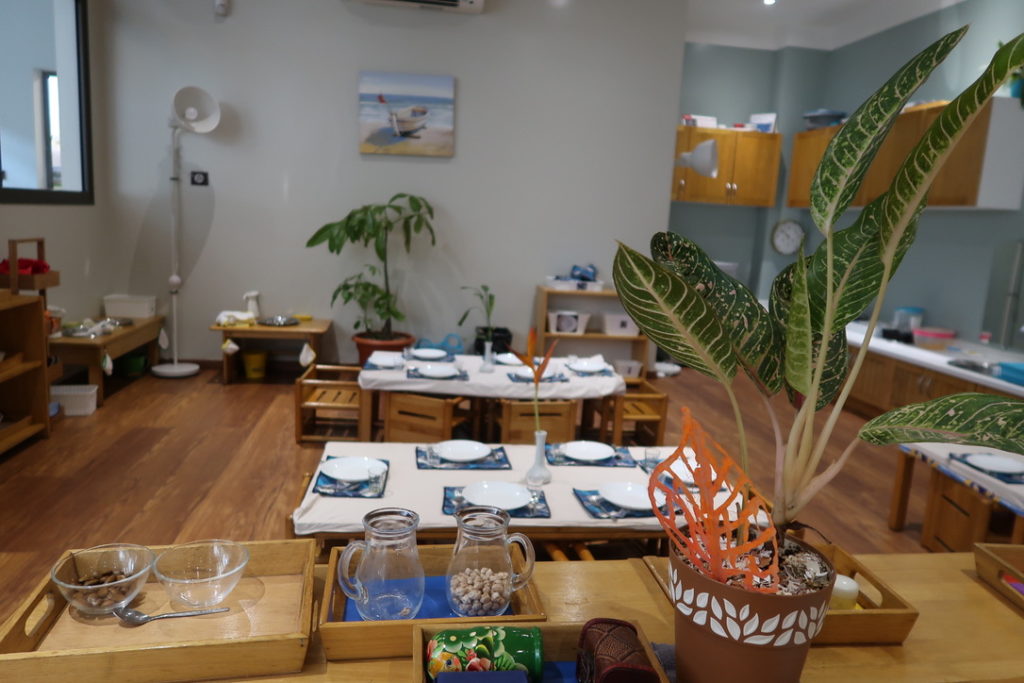
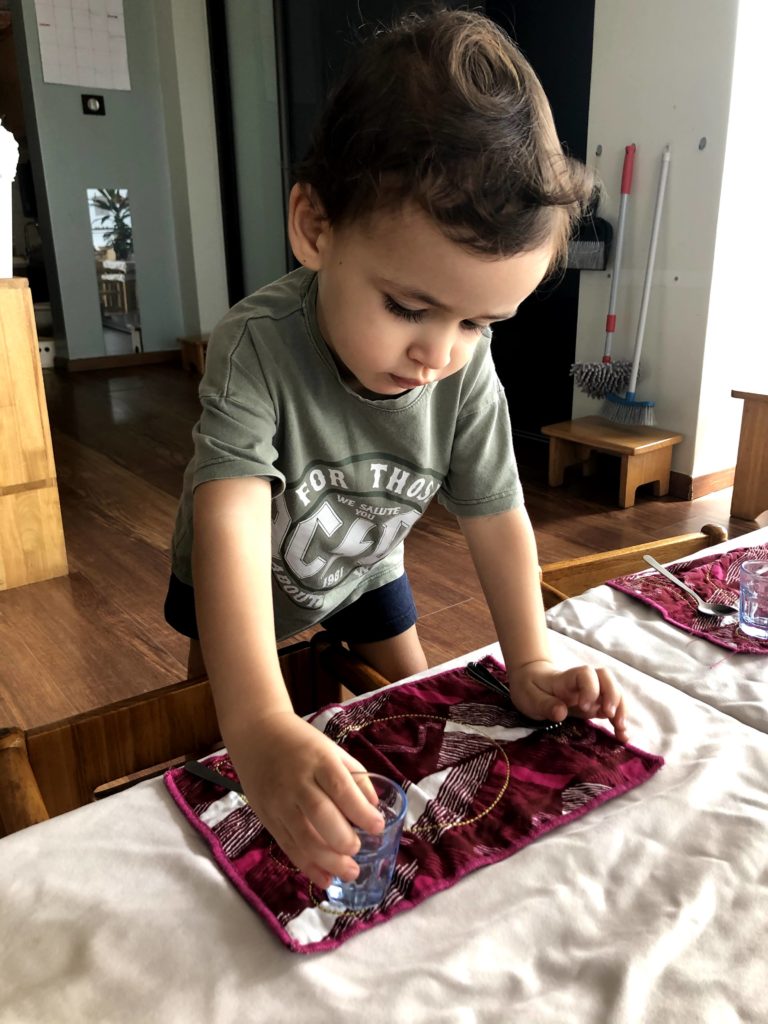

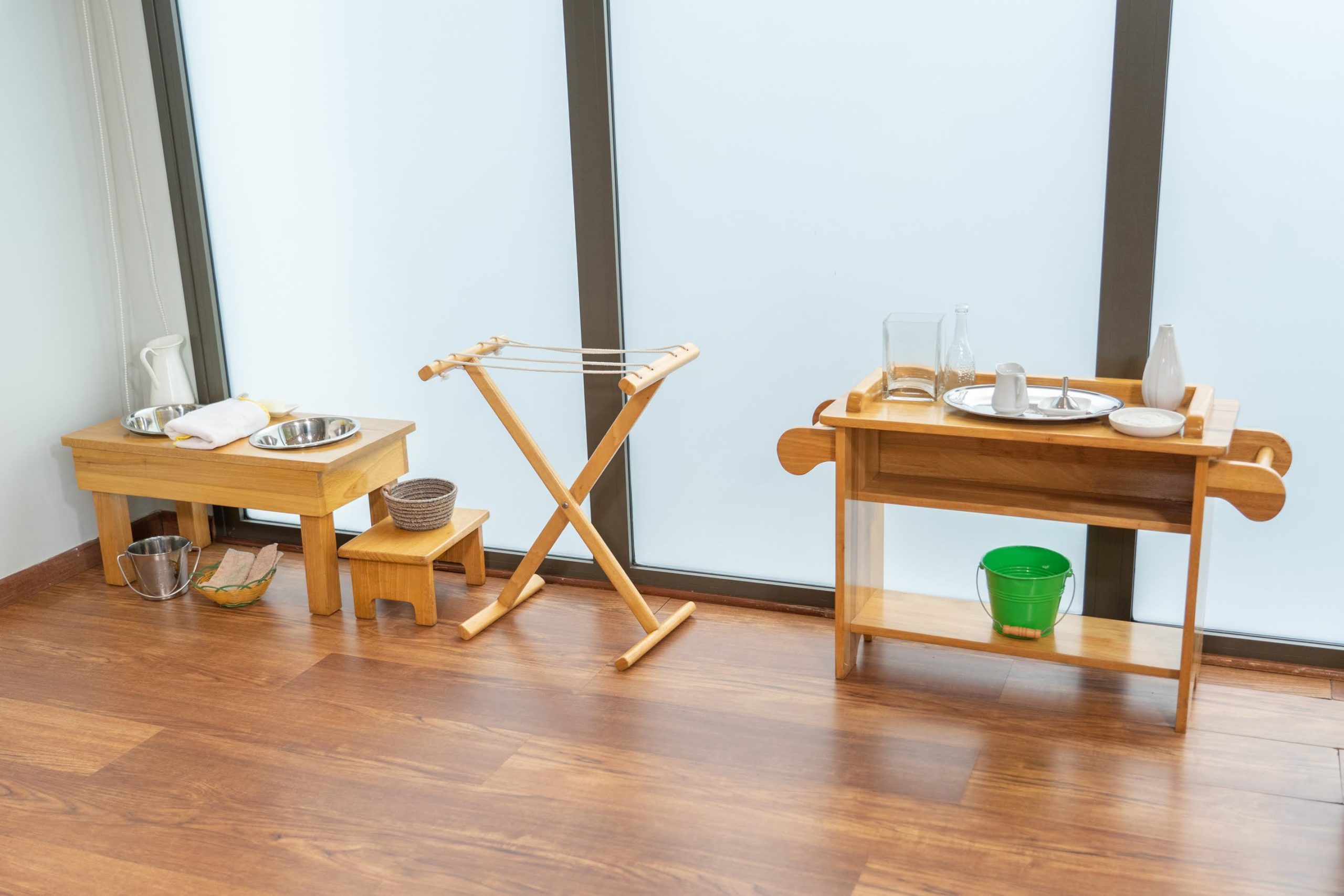
Start
8:00 AM – 8:30 AM
Close
3:00 PM – 3:30 PM
We follow the same school holidays as the French schools of Abidjan.